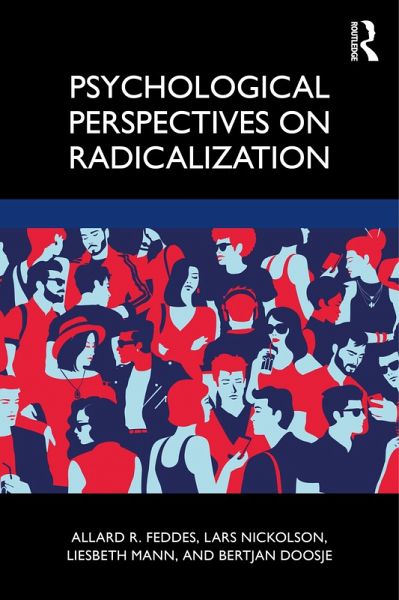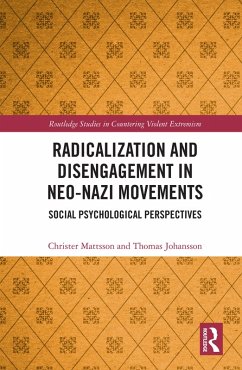
Psychological Perspectives on Radicalization (eBook, ePUB)
Versandkostenfrei!
Sofort per Download lieferbar
37,95 €
inkl. MwSt.
Weitere Ausgaben:

PAYBACK Punkte
19 °P sammeln!
This innovative book examines radicalization from new psychological perspectives by examining the different typologies of radicalizing individuals, what makes individuals resilient against radicalization, and events that can trigger individuals to radicalize or to deradicalize.What is radicalization? Which psychological processes or events in a person's life play a role in radicalization? What determines whether a personal is resilient against radicalization, and is deradicalization something that we can achieve? This book goes beyond previous publications on this topic by identifying concrete...
This innovative book examines radicalization from new psychological perspectives by examining the different typologies of radicalizing individuals, what makes individuals resilient against radicalization, and events that can trigger individuals to radicalize or to deradicalize.
What is radicalization? Which psychological processes or events in a person's life play a role in radicalization? What determines whether a personal is resilient against radicalization, and is deradicalization something that we can achieve? This book goes beyond previous publications on this topic by identifying concrete key events in the process of radicalization, providing a useful theoretical framework that summarizes the current state-of-the-art research on radicalization and deradicalization. A model is presented in which a distinction is made between different levels of radicalization and deradicalization, with key underlying psychological needs discussed: the need for identity, justice, significance, and sensation. The authors also describe what makes people resilient against messages from "the outside world" when they belong to an extremist group and discuss observable events which may "trigger" a person to radicalize (further) or to deradicalize.
Including real-world examples and clear guidelines for interventions aimed at prevention of radicalization and stimulation of deradicalization, this is essential reading for policy makers, researchers, practitioners, and students interested in this crucial societal issue.
What is radicalization? Which psychological processes or events in a person's life play a role in radicalization? What determines whether a personal is resilient against radicalization, and is deradicalization something that we can achieve? This book goes beyond previous publications on this topic by identifying concrete key events in the process of radicalization, providing a useful theoretical framework that summarizes the current state-of-the-art research on radicalization and deradicalization. A model is presented in which a distinction is made between different levels of radicalization and deradicalization, with key underlying psychological needs discussed: the need for identity, justice, significance, and sensation. The authors also describe what makes people resilient against messages from "the outside world" when they belong to an extremist group and discuss observable events which may "trigger" a person to radicalize (further) or to deradicalize.
Including real-world examples and clear guidelines for interventions aimed at prevention of radicalization and stimulation of deradicalization, this is essential reading for policy makers, researchers, practitioners, and students interested in this crucial societal issue.
Dieser Download kann aus rechtlichen Gründen nur mit Rechnungsadresse in A, B, BG, CY, CZ, D, DK, EW, E, FIN, F, GR, HR, H, IRL, I, LT, L, LR, M, NL, PL, P, R, S, SLO, SK ausgeliefert werden.













